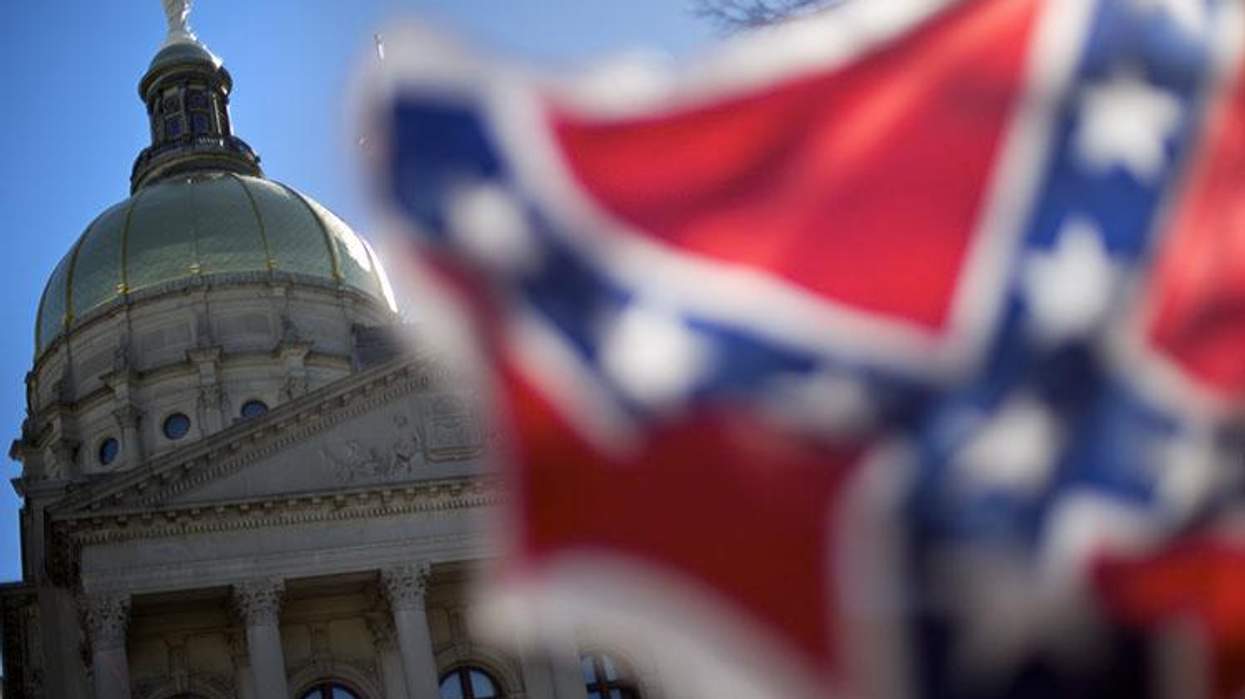An amendment to a bill that would have extended civil rights protections to LGBT Georgians was defeated in a House subcommittee Monday. That bill, which protects against discrimination on the basis of religion, race, color, and national origin, is still alive and being taken up today by the full House Judiciary Committee, reports The Atlanta Journal-Constitution.
The defeated amendment to HB 849 sought to protect people from discrimination on the basis of sexual orientation, gender identity, sex, disability, age, or veteran status. Even without these characteristics being added to bill HB 849, the measure is designed so that Georgia law more closely mirrors existing federal statutes. The bill would protect Georgians against discrimination on the basis of race, color, religion, or natural origin in hotels, restaurants, theaters and other public accommodations, according to the Journal-Constitution.
If signed into law, the bill would allow Georgians to sue for discriminatory practices in state court. Georgia is one of four or five states that doesn't have such protections, according to state Rep. Rich Golick, a Republican from Smyrna, who introduced the bill.
The amendment protecting LGBT people and others was the work of state Rep. Taylor Bennett, a Democrat from Brookhaven, who said he wanted to "create a more inclusive class of protected individuals inside this legislation. All tax-paying Georgians this legislation would affect deserve to reap the fruits of their labor."
According to the Journal-Constitution, protections for LGBT people would have passed if lawmakers who were not members of the subcommittee did not use their influence on subcommittee members.
"The 6-4 vote only occurred with outside help. Two of those 'no' votes came from state Reps. Barry Fleming, R-Harlem, and Joe Wilkinson, R-Dunwoody, who are members of the Judiciary Committee, but not this particular subcommittee. The final vote against the amendment came from House Majority Whip Matt Ramsey, R-Peachtree City.
"Without those votes, the amendment would have passed 4-3.
"House rules allow members of committees to vote on any subcommittee. Those rules also allow the speaker pro tem, majority leader and majority whip to vote on any committee or subcommittee. It only happens on rare occasions and typically only when House leadership is concerned a vote might not go the way it wishes."
During discussion of the amendment. subcommittee chair Rep. Johnnie Caldwell Jr., a Republican from Thomaston, said he was afraid that adding too many characteristics might leave some Georgians feeling left out. "If we define people and set out groups without having groups defined in the bill, we may leave somebody behind," he said, "I'm a little bit dubious at this time as to why we need the amendment now."
State Rep. Tom Weldon, a Republican from Ringgold, asked someone to help him understand what gender identity is. "Could you just define -- maybe I just live too far in the woods, but I'm not sure what gender identity is and what group of people that defines," he said. "Could you help me understand that?" The Journal-Constitution reports:
"Bennett replied: "There is a large population of people that suffer discrimination on what psychologists, medical professionals, have identified as gender identity disorder. They do suffer from discrimination. These definitions are included to ensure these people are not left behind in the language of this legislation."
According to the paper, Monday's meeting began smoothly, with Golick encountering no opposition until Bennett offered his amendment.
"Anthony Kreis, a University of Georgia constitutional scholar and gay rights activist, said he was disappointed in how the vote occurred.
"The fact that the cards were stacked against LGBT Georgians from the get-go is discouraging and goes to show that despite recent gains in the courts, the LGBT community remains vulnerable in the General Assembly," Kreis said. "Sadly, but for some folks putting their thumbs on the scales, we could have made progress toward making Georgia a welcoming place for all."
Recently, another Georgia lawmaker introduced the First Amendment Defense Act, a bill that would allow businesses and individuals, including government employees, to discriminate against same-sex couples and LGBT people generally in the name of religion.




































































Charlie Kirk DID say stoning gay people was the 'perfect law' — and these other heinous quotes